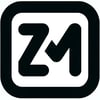“Health is the wealth”
The above written wise words truly reflect what should be the priority in our so-called fast-growing and busy life. Being healthy should be a task of top priority as it involves mental and emotional fitness. The stress that comes from poor health affects other areas of your life.
Health problems can make daily tasks more challenging, financially stressful, and even jeopardize the ability to earn a living. Thanks to growing technology, it has become easy to take care of your health with effective healthcare apps. Statistics say that the online healthcare market size can reach 236 billion USD by 2026. Keep reading to find what medical mobile app development includes.
The Emerging Online Healthcare Market
The online healthcare market has surged in the last nine-ten months, because of the coronavirus pandemic hit. Now visiting hospitals or local clinics is perilous. Even doctors prefer online patient consultation rather than calling the patients at the clinics. Even when the pandemic gets over, it is expected that the demand for online healthcare app development will remain high.
What is a Healthcare App?
An app connects various medical platforms, including online doctor consultation, medicine delivery services, workout videos, online health records, and whatnot. With the rise in the healthcare industry and people's awareness about health, the demand for healthcare apps is at its peak. Keep reading to learn about various aspects of healthcare apps.
Trends in Healthcare Applications
Every year trends come and go, and sometimes trends stay for a longer time than expected. Digital health is an innovative and ever-changing area of healthcare. Following are some highlights of trends in healthcare applications:
1. Artificial Intelligence and Chatbots
One of the obvious trends that are reaching and touching almost every industry is artificial intelligence. Thanks to AI, now Patients don’t have to travel, sit in crowded waiting rooms, wait for their doctor to write them a script, or give them a diagnosis. By 2026, it is believed that AI in the health market will reach USD 45.2 billion, so you can imagine how big the market will be. Even chatbots enable patients to confirm their history, explain their symptoms, and express their concerns before meeting with their doctor.
2. Blockchain
Data security is a major concern within the healthcare industry. With a sudden data breach of the healthcare industry between 2009 and 2017 of 176 million patient records, blockchain was the need of the hour.
Blockchain has an amazing ability to keep patient records safe with its decentralized, incorruptible, and transparent log of all patient data. Each record is protected with complex and secure codes to meet the expectations of confidentiality in healthcare app development.
3. IoT
IoT has a strong and growing impact on healthcare. With the growth of wearable technologies like fitness watches, bands in everyday life. It helps in better health with activities like a diagnosis of certain diseases, treatment, patient tracking, and maintenance of health product inventories.
Real-time monitoring via connected devices can save lives. These devices collect data relevant to our medical conditions like high or low blood pressure, blood sugar level, weight, and store information in the cloud.
4. Geolocation
You might wonder why geolocation helps in better healthcare apps? So, it is the ability to determine the user’s location, and it becomes helpful in the following scenario:
- Finding the address of hospitals, pharmacies, and lots more;
- Help to find the location of a person, in case of a medical emergency;
- In case of natural calamities, geolocation seems extremely helpful.
5. AR/VR
AR/VR is quite popular in e-commerce platforms, but it happens to be popular in the healthcare industry too because of its enduring advantages. Augmented Reality and Virtual Reality with improved technologies can be a boon for the health department. AR can be applied in vast aspects of autism treatment, education, mental wellbeing, and vein apprehension.
While VR can improve the accuracy and effectiveness of current procedures and human capabilities. Even surgical planning becomes much easier with the help of these revolutionary technologies. For instance, VR can be used to educate patients before surgery, by showcasing the digitized version of the brain, along with the problem that the surgeon has to fix, and showcasing how it will be done.
Healthcare App Types
1. Appointment Scheduling
Amid fast life and busy schedules, the doctor appointment app is one of the most demanded apps. Here you can make an appointment at certain hospitals or for an entire suburb. This app must include the doctors’ profile, payment systems, a calendar to choose the time and date, and the notification feature to remind patients about their appointment.
2. EHR
Electronic Health Records system is widely popular and adopted in a mobile app. The majority of patients, especially young patients, are happy with the use of EHR and many claimed that it has improved their treatment in various ways. But still, it is a long way for EHR because of privacy concerns, bugs, and many other factors.
3. Telehealth Apps
Telehealth is a major trend with the ongoing pandemic as it allows patients to consult doctors via online consultation or through the phone. People’s busyness has always been a favorite reason to tell the deteriorating health, but now no more.
You can use a telehealth app to get access to your doctor without paying a visit to his hospital or clinic. Telehealth not only saves time for doctors and patients but offers countless benefits to both parties.
4. Remote Patient Monitoring
Remote patient monitoring is one of the best aspects of the advanced healthcare industry. It connects patient-generated health data to the hospital, doctor, or medical institution which comes in handy in a health emergency. There are varieties of the functionalities of remote monitoring apps that vary because of their different aspects of integration with different hardware devices. There are remote patient monitoring apps for chronic illness and some for general illness.
5. Medication Management Apps
It is quite a popular type of healthcare application as it reminds patients about what medicine to take and when to take it. Handling one pill is manageable but multiple pills, if not followed correctly, can prove dangerous and that is where the role of medication management becomes crucial. They also help to set reminders and alerts. Once you down the app, the patient needs to fill in details like the dose, dose-intake timings, and dose frequency. After this, the medication will remind you about the dose.
6. Mental Wellness Apps
For those who can’t afford a life coach or psychiatrist but struggling with mental illness, the mental wellness app is a true blessing. All you need to download a mental wellness app to adopt the wealth of resources that make therapeutic techniques more accessible, affordable, and importantly portable.
Some available apps help you to understand certain unusual feelings you are dealing with. Certain apps offer actionable insights such as meditation, exercise, sleep to help to rationalize your irrational thoughts. But make sure not to take any medicines without the certified doctor consultations.
7. Fitness Apps
Fitness has become a new religion which leads to the unstoppable growth of the fitness app in the market. It is expected that by 2027 it will reach USD 14.64 Billion. These apps help people to meet their fitness goals by encouraging healthy living, managing workout schedules, and much more. It records activities, keeps track of your workout activities, and provides stats associated with it. Push your limits with the right kind of fitness app.
Important Features of a Healthcare App
1. Easy Registration and Login Process
The foremost feature should be easy registration and login processes as it is the first step of the interaction of patients and doctors.
2. Video Conferencing
In a pandemic time, visiting a hospital can be a risky choice and to avoid the chance of infection, the video conference option in the telehealth app is a true blessing. You as a developer can take the help of technologies such as WebRTC to develop video conference features for mobile and web apps. Technology allows patients for urgent consultation with doctors, especially when mobility is an issue.
3. Search Feature
A healthcare app is incomplete without a search feature. It should enable the user to search for a doctor and anything that the user is looking for. It would be ideal if it offered suggestions and auto-completion.
4. Push Notifications
Push notification is a powerful feature as it reminds users about medication, water intake, workout, and a lot more.
5. In-built Payment Option
It enables a user to pay their fees from the app to avail the service available in the app.
6. Analytics & Reporting
It helps you to get regular reports on mobile app behavior, app issues, app crashes, and lots more.
7. Activity Feed
It enables the user to see various streams of activities.
8. User Dashboard
Here users get to see charts and other information as per the usage of the app.
9. User Profile
It contains details of the user and an option to personalize their information.
10. Chat
It allows the user to seek help from a practitioner who is available on the mobile application to offer consultation.
Cost of Building a Healthcare App
There are various factors to be considered while calculating the cost of developing a healthcare app. Following are some:
1. App Features
If you wish to develop an app with complex features, then the cost would get high, and for basic featured apps, it would go down. While finalizing a deal for the app development, make sure to discuss the same to save yourself from later trouble.
2. Platform Choice
Another crucial factor that determines the cost of development is the choice of a development platform. For example, building an Android app is a costly affair than building an app for iOS. But again, quality assurance in iOS needs more investment. So, before anything, make sure to make a rational decision about the choice of platform. Here you can talk to your on-demand medical mobile app development company to make a fair decision.
3. Marketing is an Eessence
Marketing is a vital aspect of the success or failure of an app. A fabulous app won’t be of great use if it’s not marketed properly. For strategic marketing, you need a comprehensive good amount of money and time. While discussing the project, make sure to discuss the timeline of development as with the delay in development, the app gets costlier in terms of money and time.
4. Outsourced or In-house
One of the crucial factors to consider is the choice of developers, i.e. whether you want to go for an in-house team or want to outsource. There has always been debate on which is best between the two. A majority of people favor in-house teams because of their several benefits, but, one should also look at its downside. An outsourced team might provide an exceptional project, but a communication gap can be a major barrier in this path. It is very important to weigh both options.
Concluding Words
In this blog, various aspects to consider while planning and creating a healthcare app. Before thinking about the medical mobile app development cost, ensure the kind of health app you need and target the audience it wants to serve. For a remarkable app, make sure to hire an experienced and passionate mobile app development company capable enough to meet your goals and expectations.







Top comments (0)